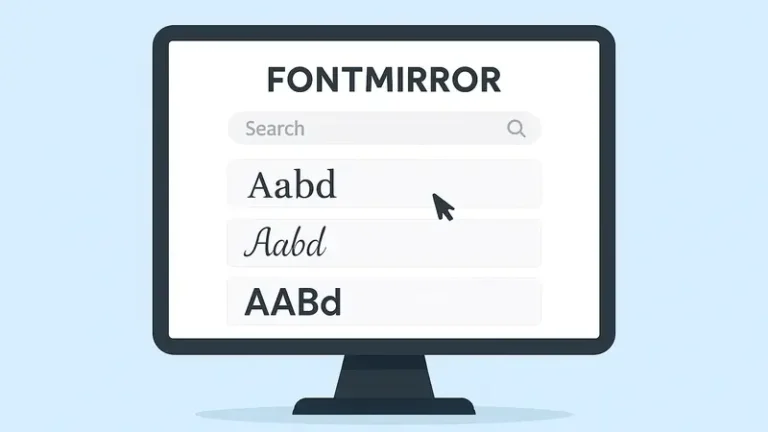
Pine Gap, the political thriller that captured attention with its unique setting and intense spy drama, left fans yearning for more after its debut in 2018. But to the dismay of many, Pine Gap Season 2 was cancelled, cutting the story short and leaving several plot threads hanging. So, why did this promising series suddenly vanish from the screen? Let’s explore the real reasons behind the cancellation, the response from fans, and what could have been if the series had continued.
What Made Pine Gap Stand Out?
Before we unpack why Pine Gap Season 2 was cancelled, it’s essential to understand what made the show unique. Created by Greg Haddrick and Felicity Packard, Pine Gap was a rare international co-production between Netflix and the Australian Broadcasting Corporation (ABC). Set against the backdrop of the real-life Pine Gap intelligence facility near Alice Springs, Australia, the show blended political drama with espionage, cyber warfare, and moral dilemmas. It tackled serious themes including global surveillance, international relations, and government transparency—presented through a fictional but plausible storyline. The cast included Parker Sawyers as Gus Thomson, Tess Haubrich as Jasmina Delic, and Jacqueline McKenzie as Kath Sinclair. The performances were compelling, and the series attracted viewers intrigued by its realistic portrayal of a secretive world.
The Big Question: Why Was Pine Gap Season 2 Cancelled?
Despite its intriguing plot and global appeal, Pine Gap Season 2 was cancelled. While no formal explanation was given by Netflix or ABC, several likely reasons have been identified by industry insiders and critics alike.
1. Mixed Critical and Audience Reception
Reviews for Pine Gap were a mixed bag. While the show was praised for tackling relevant global issues and showcasing strong performances, it also drew criticism for its slow pacing and dense political dialogue. Critics labeled it “ambitious but flat,” and many viewers found the first few episodes difficult to get into. This lukewarm reception did not generate the kind of buzz that typically fuels renewals.
In today’s streaming ecosystem, shows need to capture attention quickly. If the early episodes fail to hook audiences, the chances of a second season diminish. Unfortunately, this seemed to be the case here.
2. Underwhelming Viewership
Another major factor in why Pine Gap Season 2 was cancelled likely revolves around numbers. Streaming platforms like Netflix depend heavily on viewership metrics. The decision to renew a series hinges on how many people watched it and how quickly.
Despite being available to a global audience, Pine Gap failed to achieve the high viewership numbers needed to justify its cost. While it may have attracted a loyal niche audience, it wasn’t enough to make it a top-tier priority for either Netflix or ABC.
3. High Production Costs
Producing a show set in a military intelligence environment comes with unique demands—authentic locations, complex props, high-tech effects, and skilled actors. While not as expensive as a blockbuster, Pine Gap required a significant budget.
Given its underwhelming reception and viewership, the financial risks likely outweighed the potential gains, pushing networks toward the decision to pull the plug on future episodes.
4. Political Sensitivities and Real-World Backlash
One of the more controversial aspects of Pine Gap was its subject matter. The real Pine Gap facility is a joint U.S.-Australian defense and intelligence site, playing a crucial role in global surveillance. The show’s portrayal of international relations, particularly tensions with China, raised eyebrows in diplomatic circles.
Some critics argued that the show could be perceived as politically provocative. In an increasingly sensitive geopolitical climate, this kind of attention may have discouraged producers from pursuing further seasons.
Fan Reactions: Outrage, Petitions, and Disappointment
When word spread that Pine Gap Season 2 was cancelled, fans weren’t happy. Many took to social media to express their frustration. Some created online petitions urging Netflix to reconsider its decision, arguing that the show’s concept deserved more development and that several story arcs remained unresolved.
Twitter threads became echo chambers of speculation and dissatisfaction. On Reddit, fan theories about potential season 2 plots flourished. Despite the passion from its niche audience, the noise wasn’t loud enough to sway the networks.
What Could Season 2 Have Delivered?
One of the most frustrating things for fans is knowing that the story was far from over. Season 1 ended with several unresolved tensions—both on the geopolitical stage and in personal relationships.
If Pine Gap Season 2 wasn’t cancelled, we could have expected:
(1) Deeper character arcs: Gus and Jasmina’s complex dynamic hinted at deeper betrayals and personal conflicts. Season 2 might have explored their loyalties more fully.
(2) Expanded international tension: The first season hinted at growing Chinese interest in Pine Gap operations. Future episodes could have escalated this subplot.
(3) More intense cyber warfare: With increasing global cyber threats, the show had a perfect opportunity to dive into digital warfare, surveillance manipulation, and espionage ethics.
(4) Exploration of whistleblowing and internal leaks: The theme of transparency and internal sabotage could have been ramped up, offering thrilling storylines in line with real-world headlines.
Is There Any Chance of a Revival?
In the world of streaming, cancelled doesn’t always mean dead forever. Many shows (Lucifer, Manifest, The Expanse) have been revived due to fan campaigns or studio changes. While there’s currently no sign that Pine Gap Season 2 will return, hope lingers.
(1) Factors that could influence a revival include:
(2) Renewed interest due to current geopolitical events.
(3) New partnerships with production studios.
(4) Fan-led campaigns gaining enough momentum to catch Netflix’s attention.
That said, as of now, the series remains shelved.
Lessons for Future Series
The case of Pine Gap Season 2 cancelled offers several insights into the modern entertainment landscape:
(1) Execution trumps concept: Even a compelling premise needs engaging storytelling and pacing to retain viewers.
(2) Early momentum matters: Shows must hook viewers in the first episode or risk fading into obscurity.
(3) Navigating political topics requires care: Tackling real-world issues is important but can also lead to backlash or cautious retreat from producers.
(4) Fan engagement is key: The louder and more organized a fanbase, the better the chances of revival or continuation.
Final Thoughts
The cancellation of Pine Gap Season 2 was a blow to fans of intelligent thrillers and politically charged storytelling. Despite a strong premise and a talented cast, the series couldn’t overcome its early setbacks, audience disengagement, and high production costs. Though we may never see how the story unfolds beyond the original six episodes, Pine Gap will be remembered as a bold attempt to bring Australia’s most secretive facility into the public imagination. In a genre often dominated by American and British perspectives, it offered a fresh take on global surveillance and espionage. For now, all fans can do is rewatch the existing episodes, hope for a surprise revival, and continue the conversation online—keeping the spirit of Pine Gap alive, even if Season 2 remains a what-if.
For more update please visit my website: letflix



